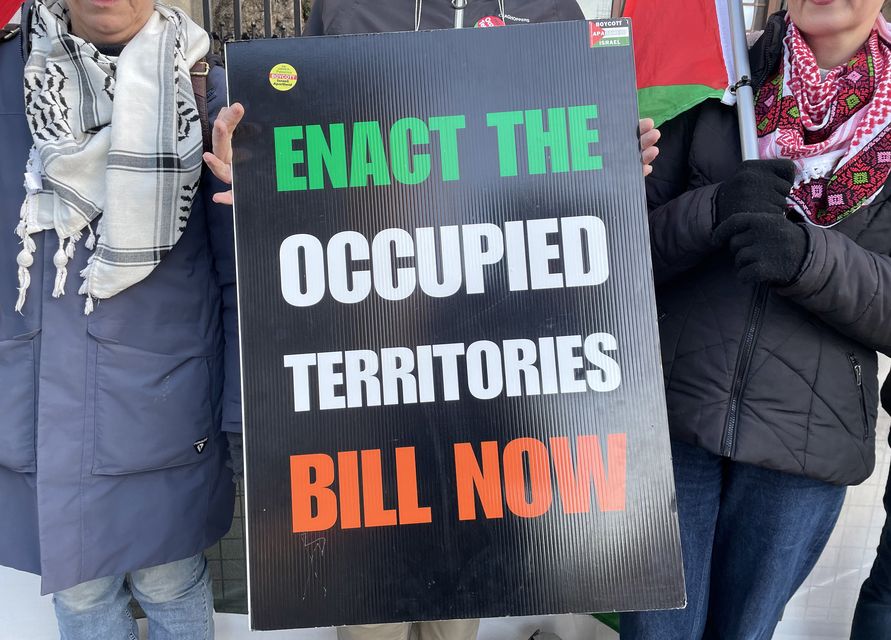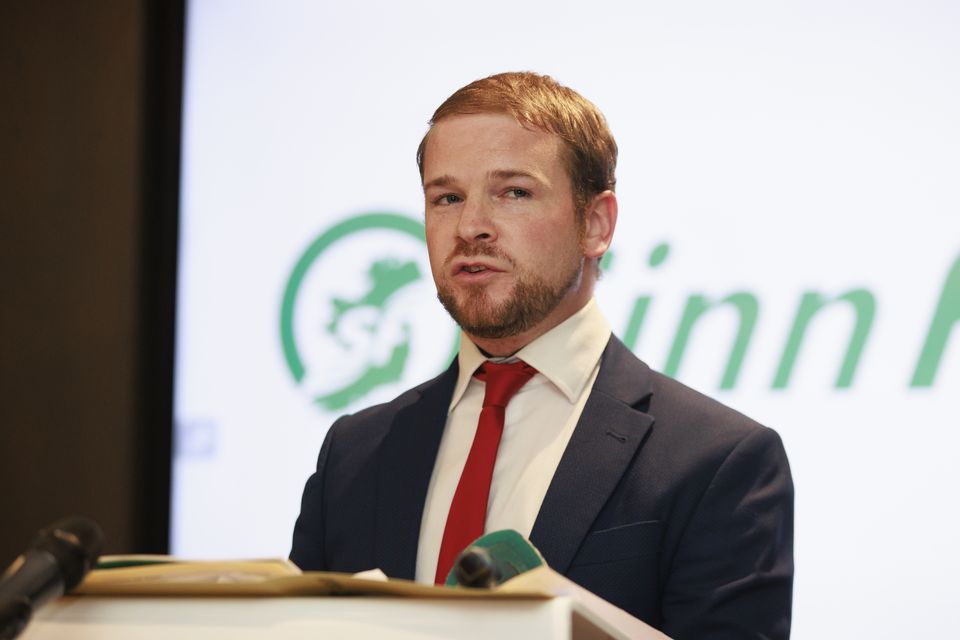Ireland’s deputy premier has confirmed that the government intends to ban goods but not services from illegal Israeli settlements on Palestinian land.
Tanaiste Simon Harris strongly suggested that a ban on services was being dropped for legal reasons.
The Occupied Territories Bill, first introduced to the Irish parliament in 2018, would ban trade of both goods and services with all illegally occupied territories, including illegal Israeli settlements on Palestinian land.
The Irish government had committed to enacting the Bill after the UN’s top court issued an advisory opinion last July that said countries should act to prevent trade or investments that maintain illegal Israeli settlements.
Micheal Martin, who is now Ireland’s premier, said in October that the advisory opinion provided “a very stateable case now” to enact the Occupied Territories Bill.
He said that substantial amendments would be needed to reflect the International Court of Justice opinion and to make the Bill legally “robust”.
But in January, Mr Martin suggested the Occupied Territories Bill would be replaced with fresh legislation and “a full debate in the Dail” was now needed.
Campaigners behind the Bill expressed concern that this could see it being “watered down” – specifically, it could mean only the trading of goods is banned and not services.
Speaking in the Dail parliament on Tuesday, Mr Harris was asked to clarify several times whether the Irish government intended to ban services as well as goods from the occupied Palestinian territories.
Mr Harris said the government will enact what is laid out in the programme for government, which commits to “progress legislation prohibiting goods from Occupied Palestinian Territories”.
An Irish Palestine Solidarity Campaign protest outside Leinster House calling for the Occupied Territories Bill to be enacted (PA)
“The government’s position is to legislate prohibiting goods from the occupied Palestinian territory,” Mr Harris confirmed.
“The programme for government sets out a commitment to progress legislation preventing goods from the occupied Palestinian territory. That’s the mandate I’ve received, and that’s what I’m now progressing.
“I actually, though, take the point Deputy (Eoghan) Kenny makes in good faith, and Deputy (Donnchadh) O Laoghaire… about not wanting to see a watered-down Bill, but let me make this point.
“I actually think the only Bill that would be watered down would be one that we would pass knowing that it was not in compliance with law and not in compliance with the Constitution and not in compliance with EU law.
“I’m not in the business of passing things that I know are not lawful. In fact, that is an irresponsible act of government. It’s an irresponsible act of legislators.
“Our position is that we’re actually passing a Bill that is strengthened in this fact, that it can actually stand up to scrutiny at an EU level. That is important, because we have to pass laws that are compliant.”
Donnchadh O Laoghaire said he believed technical issues were being used ‘as a ruse or a distraction’ from the government changing its policy since November’s election (PA)
Sinn Fein foreign affairs spokesperson Donnchadh O Laoghaire said that he believed technical issues were being used “as a ruse or a distraction” from the government changing its policy on the bill since November’s election.
“The policy of the government is now to ban only goods, and (in) Ireland, 30% of our trade would be in goods.”
Mr O Laoghaire added: “Why?
“The International Court of Justice did not make any distinction between goods and services. Why is it the case that the Irish government no longer wishes to pursue a ban on services from the occupied territories, including the West Bank?”
Mr Harris said the Irish government would “constructively engage” on issues relating to the Bill.
“But we are going to have to have to look at everything through the prism of law, and we’re also going to have to look at everything through the prism of how things can be operationalised and work. This is a complex area,” he said.
“Yes, we got legal advice that it may now be possible to do something. We shouldn’t, though, fool ourselves in terms of the breadth of that ability.
“This is a very narrow path in terms of making sure that any law that this Oireachtas passed is exactly as it should be – lawful – and I believe to do anything else would be, not intentionally, but accidentally symbolic rather than meaningful.”
Mr Harris, who is also the Irish foreign affairs minister, said he was “alarmed and concerned” at the language used in recent hours about the conflict in the Middle East.
It comes after Israeli Prime Minister Benjamin Netanyahu threatened to end the ceasefire in the Gaza Strip if Hamas does not go ahead with the next scheduled release of hostages on Saturday.
“Everybody in the world needs to really put their shoulders to the wheel and make sure the ceasefire holds, the hostages are released and humanitarian aid flows,” Mr Harris said.

